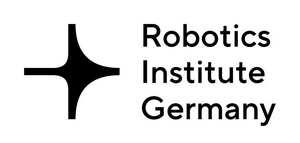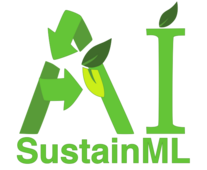
Research Departments
- Agents and Simulated Reality 2
- Augmented Vision 2
- Cognitive Assistants 2
- Cyber-Physical Systems 1
- Embedded Intelligence 3
- Experience-based Learning Systems 1
- Innovative Factory Systems 5
- Institute for Information Systems 1
- Intelligent Analytics for Massive Data 1
- Intelligent Networks 1
- Marine Perception 5
- Robotics Innovation Center 4
- Smart Data & Knowledge Services 4
- Smart Enterprise Engineering 2
Research Topics
- Autonomous Systems 9
- Data Management & Analysis 12
- Human-Machine Interaction 4
- IT Security 3
- Image Recognition & Understanding 5
- Language & Text Understanding 1
- Machine Learning & Deep Learning
- Other 9
- Robotics 7
- Sensors & Networks
- Virtual & Augmented Reality 2
Fields of application
- Environment & Energy
- Farming & Agricultural Technology 2
- Health & Medicine 5
- Industrie 4.0 10
- Knowledge & Business Intelligence 1
- Mobility 4
- Other 8
- Smart Home & Assisted Living 7
- Trade & Logistics 2
Search narrowed by:
Displaying results 1 to 10 of 28.
Research Departments
- Agents and Simulated Reality 2
- Augmented Vision 2
- Cognitive Assistants 2
- Cyber-Physical Systems 1
- Embedded Intelligence 3
- Experience-based Learning Systems 1
- Innovative Factory Systems 5
- Institute for Information Systems 1
- Intelligent Analytics for Massive Data 1
- Intelligent Networks 1
- Marine Perception 5
- Robotics Innovation Center 4
- Smart Data & Knowledge Services 4
- Smart Enterprise Engineering 2
Research Topics
- Autonomous Systems 9
- Data Management & Analysis 12
- Human-Machine Interaction 4
- IT Security 3
- Image Recognition & Understanding 5
- Language & Text Understanding 1
- Machine Learning & Deep Learning
- Other 9
- Robotics 7
- Sensors & Networks
- Virtual & Augmented Reality 2
Fields of application
- Environment & Energy
- Farming & Agricultural Technology 2
- Health & Medicine 5
- Industrie 4.0 10
- Knowledge & Business Intelligence 1
- Mobility 4
- Other 8
- Smart Home & Assisted Living 7
- Trade & Logistics 2









